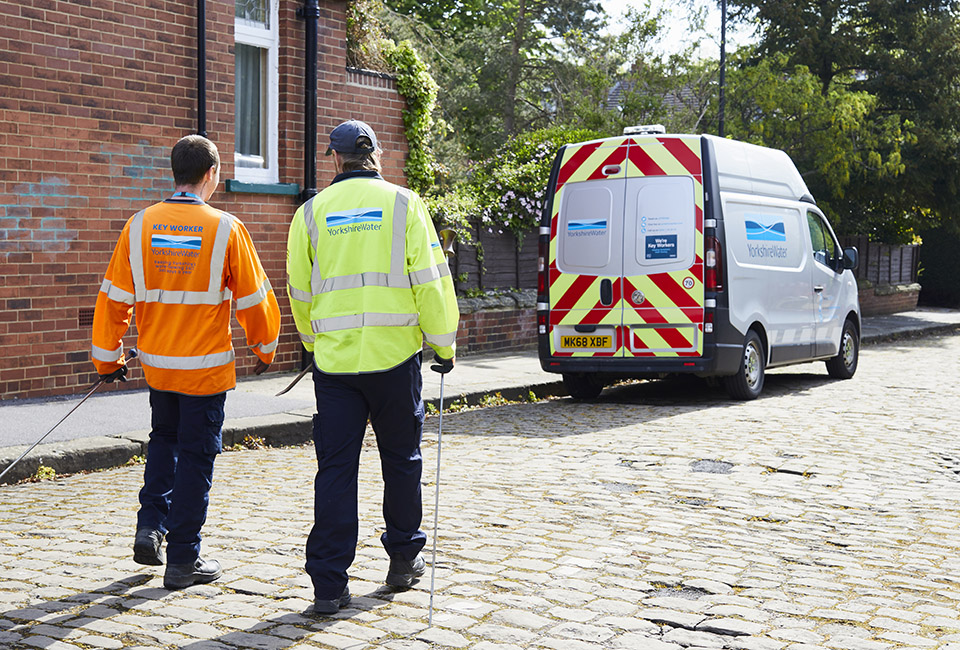How we fix leaks
1. We find the leak
We use special equipment to listen to all the pipe fittings. We’re listening for a hissing sound - this is the water escaping from the pipe. The louder the noise is the closer we are to the leak, so we follow the pipes until we find it.
If we think the leak is on your property, we’ll turn off your stop tap and have a listen to see if the leak on your supply pipe or in your home's plumbing.
If the leak is in your home's plumbing, you’ll need to get a plumber to fix the problem. We'll talk you through your responsibilities and make sure the problem gets sorted.
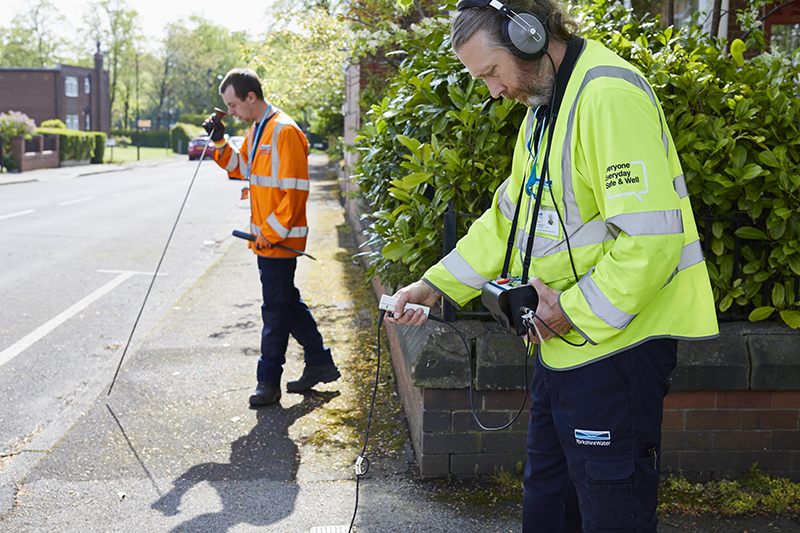
2. We plan the repair
We'll mark the leak in blue spray paint, so our team know where to dig. This paint is biodegradable and will wash away over time. Please don't park on the blue marks - we need access so we can carry out the work as quickly as possible.
If the leak is on the supply pipe under your drive or garden, we'll arrange for our specialist team to investigate and if a repair is possible, they'll fix it.
We often work with the local highways authority, other utilities and of course, our customers to make sure we're doing the work safely.
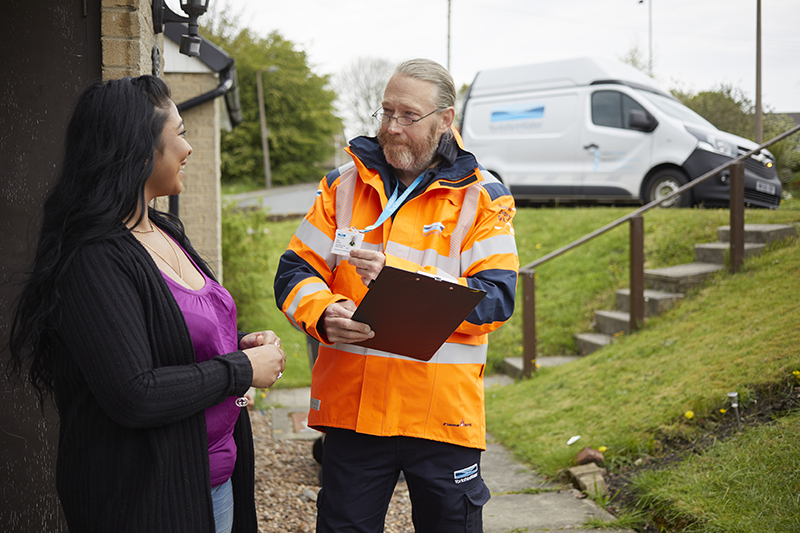
3. We fix the leak
We start by dig down to get to the pipe.
Once we're down there, we'll fix or replace the broken section.
We always try to fix the leak first time with as little disruption as possible.
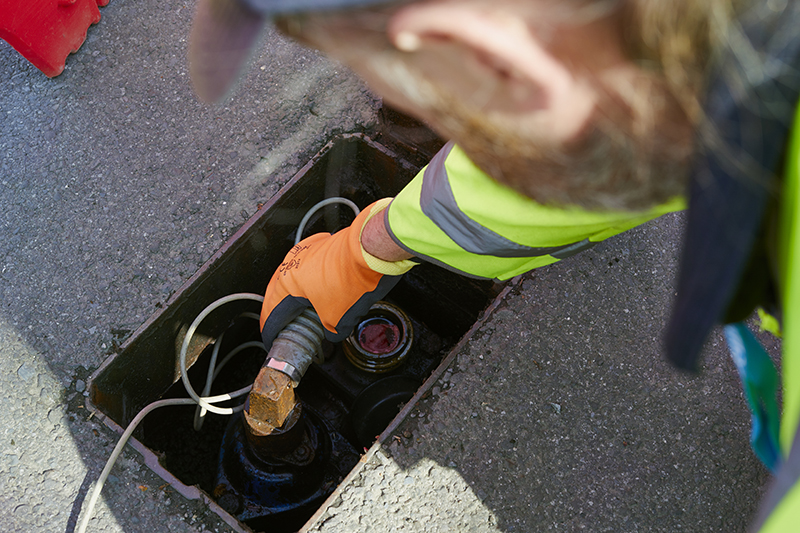
4. We fill any holes
If we can fix the problem and clear the site on the same day, we will.
Sometimes we need to leave the hole open after the repair has been done. If this happens, we'll be back to fill the hole within a few days. Once the hole is filled, we'll put everything back to normal, this might be done on a different day.
If the leak is under block paving or a resin driveway, it might not be possible to put it back exactly how it was, but we’ll talk though your options.
We know it's inconvenient when we're working outside our customers' homes, or along their daily commute, so we'll get everything back to normal as quickly as we can.
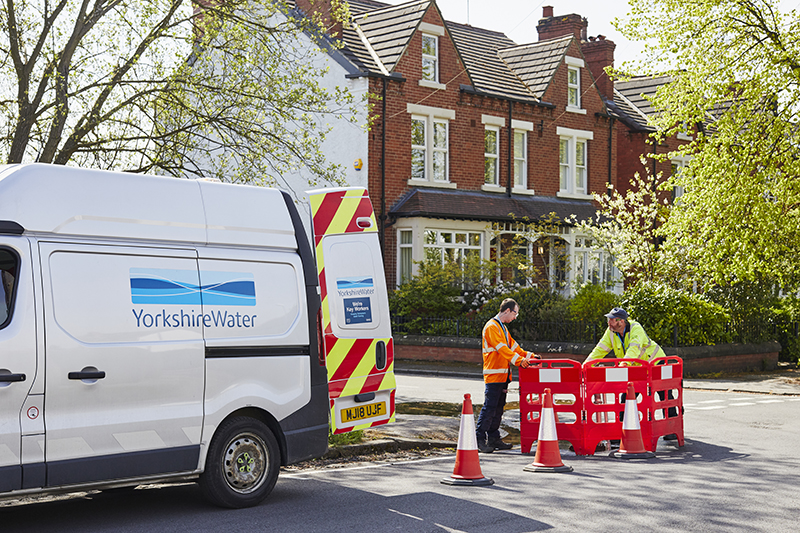
5. We tidy up
The final step is to remove any signs, barriers or traffic lights and leave the area tidy.
We thank you for your patience and for working with us while we fix the problem!
If you need to speak to us about any work in your area, please get in touch.
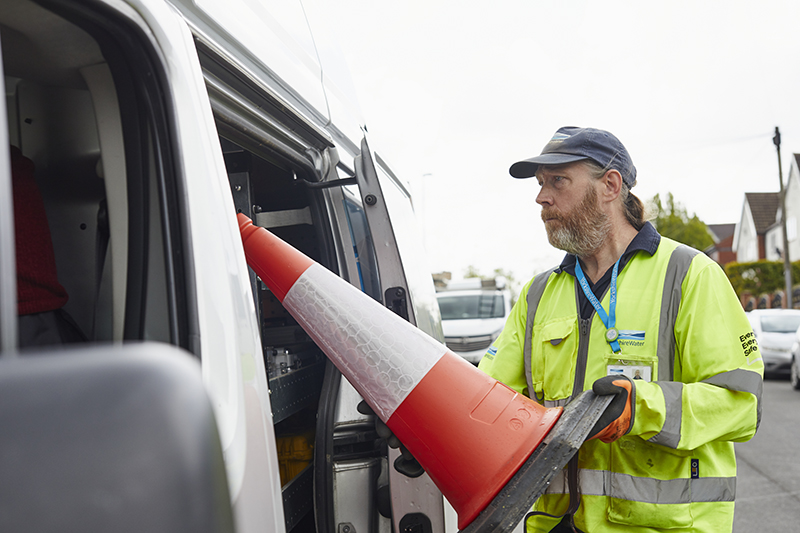
Keep an eye out for...
Low water pressure or noisy pipes
Sometimes after we've been working, you might notice knocking or banging noises coming from the pipes in your home or changing water pressure through the taps and this could be caused by an airlock in the pipes. Check our water pressure advice to push the air through your pipes.
Discoloured water
Sometimes when we've finished work, the water can look different. If this happens, run your cold tap until the water is completely clear. While your tap water is discoloured, don't run the hot tap or use dishwashers, washing machines or any appliances fed by your hot water supply. Your water colour could range from beige to dark brown or have bits in it.
Cloudy water
Water can look cloudy or milky if air mixes with the supply. If water with air is allowed to stand for a few minutes in a glass, the water will clear from the bottom of the glass upwards as the air bubbles rise to the surface. There's no risk to health associated with cloudy, milky or bubbly water. Your water should run clear again within 24 hours, once all the air has been pushed through the system.

